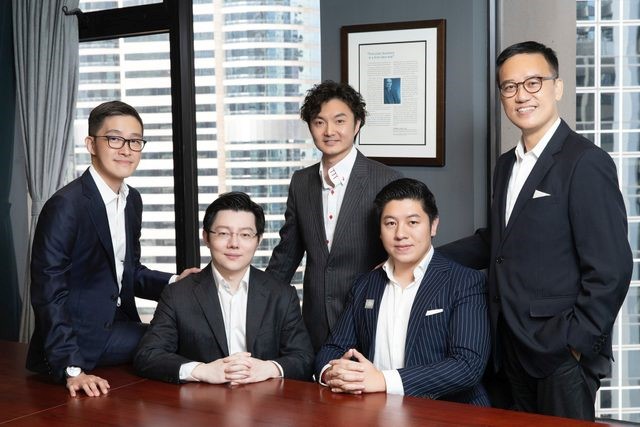Source: https://www.dealstreetasia.com/stories/china-deep-tech-hermitage-capital-321448

Deep tech sector logs reasonable valuation amid global bear market, says Hermitage Capital's Henry Zhang
With investors shying away from China’s dotcom and consumer internet industry, deep tech-focused private equity firm Hermitage Capital believes the overall valuation in the sector has remained relatively stable in the bear market.
Due to the relatively high entry barrier, the deep tech sector does not see a lot of competition from other financial investors, according to Hermitage Capital president and managing director Henry Zhang.
Hermitage, which invests in growth-stage companies across China and the US, has captured the investment sweet spot in deep tech and hard tech sectors. “We shifted our focus to deep tech back in 2019, and since then, we have made subsequent investments across different verticals including artificial intelligence (AI), autonomous driving, electric vehicle (EV), and cloud computing,” Zhang told Dealstreetasia in an interview.
“For example, we first invested into Horizon Robotics back in 2020 when it just started mass production of its autonomous driving chips with relatively small revenue compared to its global peers,” Zhang noted, adding that the firm has logged 15 times revenue growth over the last two years over the past two years, and has since emerged as a notable name globally alongside major players such as Nvidia, MobileEye and Tesla.
With $1.5 billion in assets under management, Hong Kong-headquartered Hermitage Capital already saw five of its 21 portfolio firms go public, of which four are listed in the US and one in Hong Kong.
With offices in Shanghai and New York, the firm remains bullish about the prospects of the country’s deep tech sector, citing factors such as China’s favorable government policies, rising labor costs, as well as a strong talent pool fostering industry growth.
“My view is that we’re going to see the reopening of China by early year and this will become a major catalyst for the Chinese economy, as well as for the Hong Kong stock market,” he added.
Hermitage Capital counts music streaming service Tencent Music Entertainment, which is dual-listed in Hong Kong and the US, as well as Hong Kong-listed artificial intelligence firm SenseTime Group, among its portfolio companies.
Edited excerpts of the interview:-
Investors have been shying away from China’s internet industry and have since flocked to the hard tech sector. Has China’s hard tech sector been immune to the market turmoil for the past two years?
Investing in the deep tech sector has a high entry barrier as it requires a lot of deep dives into the underlying technology and significantly more effort on due diligence and building convictions. Our partners at Hermitage Capital would spend several months conducting in-depth due diligence to understand the underlying technology patterns and future technology trends. For some of the state-of-the-art or next-generation deep tech companies, the best returns are generated just before or right after the mass production is achieved, as it is typically the inflection point following which the revenue growth becomes exponential. Our sweet spot is to invest in hard tech companies at the pre-revenue stage, as long as we have high conviction on the technology itself and mass production certainty. The same is not as easy for our other global PE peers.
The overall valuation of the deep tech sector remains reasonable and relatively stable during the current bear market, as we do not see a lot of competition from other financial investors given the relatively high barrier to entry. Our key investment principle is that we only invest in the companies where we see high revenue or earning growth potential.

Hermitage Capital’s management team. Image courtesy of Hermitage Capital.
Which vertical within the hard tech sector receives the most attention from investors?
There are several verticals within the hard tech sectors such as AI, autonomous driving, electric vehicle, and cloud computing. The issue with the deep tech sector, in general, is that many of the firms do not have a clear end-market and clear path to commercialisation. Therefore having a well-defined end market is very important.
The automotive technology market is huge — with over 25 million new vehicles being sold in China alone every year. The automotive market is currently experiencing two paradigm shifts — toward autonomous driving and electric vehicles (EVs).
Although full autonomous driving is still some time away, the demand for key components such as autonomous driving chips and LiDAR is more imminent given the increase in the adoption of an advanced driver-assistance system (ADAS). The trend is especially evident in China where the EV market is very competitive compared to the US market with new EV brands emerging every few months. As a result, the Chinese original equipment manufacturer (OEMs) are trying to differentiate from each other by adopting the latest technologies such as autonomous driving chips and LiDARs.
We are also seeing a massive shift towards EVs, as the EV penetration in China reaches close to 20% by the end of 2022 and will further increase to 50% by 2030. The key bottleneck for further increase in EV penetration is the current Li-Ion EV battery technology. We have invested in the leading players of solid-state EV battery technology leaders in both the US and China.
In the US, we invested in the Boston-based solid-state battery provider Factorial Energy, alongside strategic investors including global OEM leaders Mercedes Benz, Stellantis, Hyundai and [Hyundai’s affiliate] Kia. In China, we invested in Beijing-based solid-state battery provider WeLion, which is backed by Chinese OEM leaders Nio and Geely. The solid-state EV battery technology could substantially enhance the energy density of the battery and therefore drastically increase the mileage per charge. In addition, the solid-state EV battery does not break easily under high pressure and has a much higher flash point for the electrolyte, making it much safer compared to the traditional Li-On battery. We are excited to see this next-generation EV battery technology being validated by the OEMs and will start its mass production over the coming years.
Companies like SenseTime are currently under the sanctions list in the US. How is the firm going to navigate the geopolitical risk going forward? Is the firm going to avoid sensitive verticals like AI?
I think it really depends on the application of the technology. AI has the potential to reshape the future of humanity and can free humans from tedious and repetitive labor tasks such as manufacturing, agriculture, services and even R&D. Our ongoing investment mandate is to invest in AI companies that could be disruptive and improve the efficiency of the industries.
Take us through some of Hermitage’s portfolio companies, especially their IPO plans.
We have several portfolio companies in the IPO pipeline and shall be listed over the next 12 to 24 months depending on the IPO window.
Most of our portfolio companies are looking at both Hong Kong and the US markets. Each market has its own merits. The equity market in the US has better liquidity and more listed comparable companies. But the issue is that the Chinese firms will be categorised as Chinese American depositary receipts (ADRs), and when Chinese ADRs can resume IPO in the US remains a question mark. News of positive dialogue between the regulators in China and the US has been coming out. We are going to monitor the progress closely.
The proposed Chapter 18C by the Hong Kong Stock Exchange (HKSE) significantly lowers the revenue threshold to list on the Main Board of the HKSE for qualified companies in five specified specialist technology industries including next-generation information technology, advanced hardware, advanced materials, new energy and environmental protection, and new food and agriculture technologies, in an effort to attract hard tech and deep tech companies to IPO in Hong Kong. We advise our portfolio companies to factor in all of the above before deciding on their listing venue.


 Back
Back

